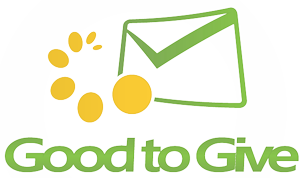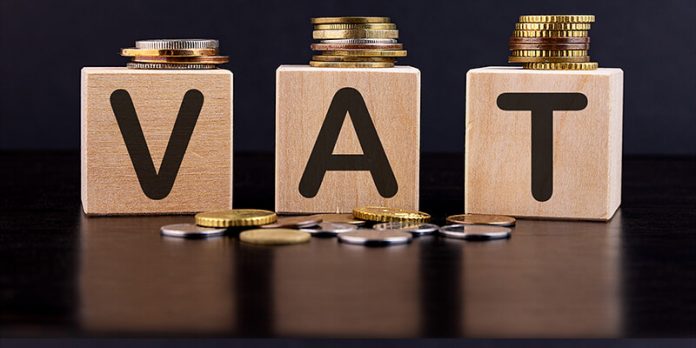3 Reasons to Verify Donor Information To Maximise Gift Aid

Balancing Faith and Practicality in Real Estate: Securing a Spiritual Legacy
July 8, 2024
How To Use Email Marketing To Stay In Touch With Your Members
July 20, 2024Gift Aid represents a vital revenue stream for charities, large and small. This government initiative allows charities to claim an extra 25p for every £1 donated by UK taxpayers, a financial boost that can significantly amplify the impact of charitable work. But, while the benefits are clear, claiming Gift Aid is underpinned by a need for diligence, especially when verifying donor information. Here’s why this step is crucial.
The Significance For UK Charities
This initiative allows charities to increase the value of donations from UK taxpayers, provided the donor has paid at least as much in Income Tax or Capital Gains Tax in that tax year as the charity claims on their donations. This scheme makes every pound donated go further, but it hinges on accurate and compliant donor information.
The Importance Of Accurate Donor Information For Claiming Gift Aid
Compliance with HMRC Regulations
The effectiveness of this initiative is due to its adherence to HM Revenue and Customs (HMRC) regulations. Charities must be able to provide detailed records of each donation, including the donor’s full name, address, and the amount donated. This meticulous record-keeping ensures that claims are legitimate, paving the way for a smooth transaction between the charity and HMRC.
Maximising Donation Value
For every incorrectly filed claim, charities not only lose out on potential additional income but may also incur penalties. Ensuring donor information is accurate and verifiable enables charities to maximise fundraising efforts. In other words, a thorough verification process acts as a safeguard, ensuring that Gift Aid enhances every eligible donation.
How Verifying Donor Information Helps In Preventing Fraud And Errors
Safeguarding Against Fraud
In an era where digital transactions are increasingly prevalent, the charity sector is not immune to the risk of fraud. Fraudulent claims can undermine the financial health of a charity and damage its reputation. By rigorously checking donor information, charities can significantly reduce the risk of fraud and ensure that the generosity of genuine donors is not taken advantage of.
Minimising Errors
Whether accidental or due to oversight, errors in donor information can lead to delays and complications in the claim process. It could be as simple as a typo in an address or a missing piece of data. Investing time and resources in verifying these details at the point of donation can save time and resources in the long run, ensuring that funds reach the charity without unnecessary delay.
The Impact Of Incomplete Or Incorrect Information On Claims
Incomplete or incorrect donor information can lead to a claim being rejected by HMRC, causing charities to miss out on valuable funds. Furthermore, persistently erroneous claims may trigger an audit by HMRC, potentially resulting in fines or, in severe cases, loss of eligibility to claim Gift Aid. Such outcomes affect the charity’s finances and can impact donor trust and confidence.
Best Practices For Charities To Ensure Accurate Donor Details And Compliance
Implement Rigorous Data Collection Processes
Develop a clear and systematic approach to collecting donor information. Whether through online forms, paper documents, or verbal agreements, ensure the process is intuitive and straightforward, minimising the likelihood of donor errors.
Invest in Training
Empower your team with the knowledge and tools to effectively verify and manage donor information. Regular training sessions can help keep everyone up-to-date on the latest regulations and best practices.
Use Technology to Your Advantage
Leveraging software solutions can streamline data verification, automating checks and balances to catch common errors. Many systems are designed to flag incomplete or incorrect information, prompting corrections before the data is submitted.
Foster Open Communication with Donors
Educating donors about the importance of providing accurate information is critical. Clear communication can encourage donors to take the time needed to ensure their details are correct, reducing the risk of errors at the source.
How We Verify Donor Information
At GoodtoGive, we understand the importance of accurate donor information in maximising gift aid contributions. Our rigorous verification process is designed to ensure that every donation is optimally processed at every stage.
Initially, when donors register with us, we collect essential details, including name, address, and taxpayer status. This information undergoes a meticulous verification process.
As we progress to the donation stage, we capture further details, ensuring all information matches our previous checks. This dual-layer verification significantly reduces the likelihood of discrepancies that could hinder the allocation of gift aid.
Finally, after a donation is made, we implement a follow-up procedure to validate and confirm the details again, keeping our records up to date and accurate.
By checking and validating at every stage, GoodtoGive consistently strives to maximise gift aid revenue for the charities we support.
Contact GoodtoGive For Gift Aid Management
If you’re a faith-based charity or church looking to maximise your donations, contact our experts at GoodtoGive today! We provide bespoke solutions that help your charity save time and money and increase efficiency in day-to-day operations.
To learn more about our gift aid management service, contact a team member on 020 7731 2041 or send us an enquiry here.




